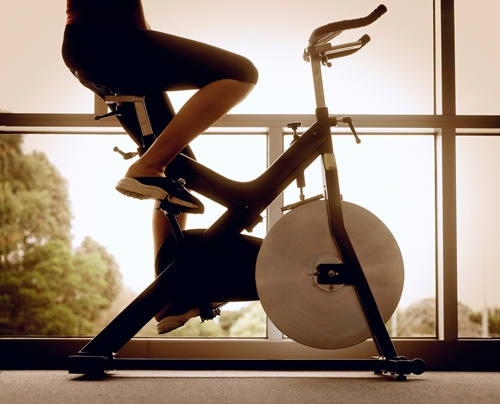Time and inexperience don’t dull benefits of senior fitness

The fact that exercise improves health is hardly news, but a recent study shined the spotlight on senior fitness, showing that even older individuals who have put exercise and health on the back burner can benefit from getting a move on.
WTNH reported on August 26 that New Haven, Connecticut, was one of eight regions to take part in the nationwide study, which was geared toward seniors between the ages of 70 and 89.
Over the course of three years, researchers from Southern Connecticut State University and the Yale School of Medicine discovered that seniors participating in moderate physical activity programs were not only more likely to see their health improve, but also stick with the exercise down the line.
The crux of the study was that these seniors were not what you'd call health nuts. They were chosen because they led sedentary, fairly unhealthy lifestyles.
"Here you have people who, exercise was not their daily routine, this is totally new to them," Exercise Physiologist Dr. Robert Axtell was quoted as saying by WTNH.
Participants in the study have commented that the program acted as a form of medicine, leading to things like lower blood pressure and less reliance on medication.
So what's the takeaway from all this? Only that it's never too late to start seeing the benefits of a little hustle and bustle. Seniors who have fallen out of the habit of regular exercise, or even those who never made a habit of it in the first place, might be wise to consider investing in a few sweatbands and putting some time aside each day for healthy activity.
Then again, starting your very own program can be easier said than done, especially if you don't know where to begin. Fortunately, there are plenty of low-impact exercises you can choose from to get your program off the ground.
Low-impact exercises for beginners
No matter what exercise or combination of them you decide to take up, make sure safety is a priority. If you're unsure if a certain exercise is right for you, speak to your doctor and find out what he or she recommends. However, if you're itching to get back on the exercise horse (or saddle up for the first time), consider some of the following:
- Walking: It may not be the most exciting of activities, but a brisk walk around the neighborhood will allow you to get your blood flowing and enjoy some fresh air while you're at it. Make comfortable shoes and a little stretching before and after your walk part of the plan.
- Cycling: While not for everyone, especially if you've recently had a hip replacement, cycling is another great low-impact exercise. If you're unsure about your balance on a bicycle starting out, consider investing in a stationary bike for your home. This way you can pedal in safety (and free from inclement weather!).
- Swimming: If you have access to a pool, making a regular dip part of your routine offers the full package. Not only does it build endurance and help with flexibility, it's much easier on joints and bones than other forms of exercise. Heck, maybe you can even work on your tan while you're at it.
- Lifting weights: You don't have to be a body builder to gain benefits from weights, such as fighting off bone density loss. Start slow and be cognizant of any pain when first starting to lift. Also be sure to increase the weight you're lifting and how many repetitions you perform incrementally. Remember, exercise is a marathon, not a sprint.
- Yoga: What at one time was a fad for a small subset of practitioners has become one of the most popular forms of exercise in the country. Not only can yoga help you with flexibility, it's a fantastic way to relieve stress and add a little harmony to your life.
- How Medicare Advantage Plans Cover Seniors’ Vision, Hearing, and Dental Needs - October 29, 2024
- 2025 Medicare Part D Changes: How to Save on Prescriptions - October 25, 2024
- Everything You Need to Know About the 2025 Medicare Changes and How They Affect You - October 21, 2024

